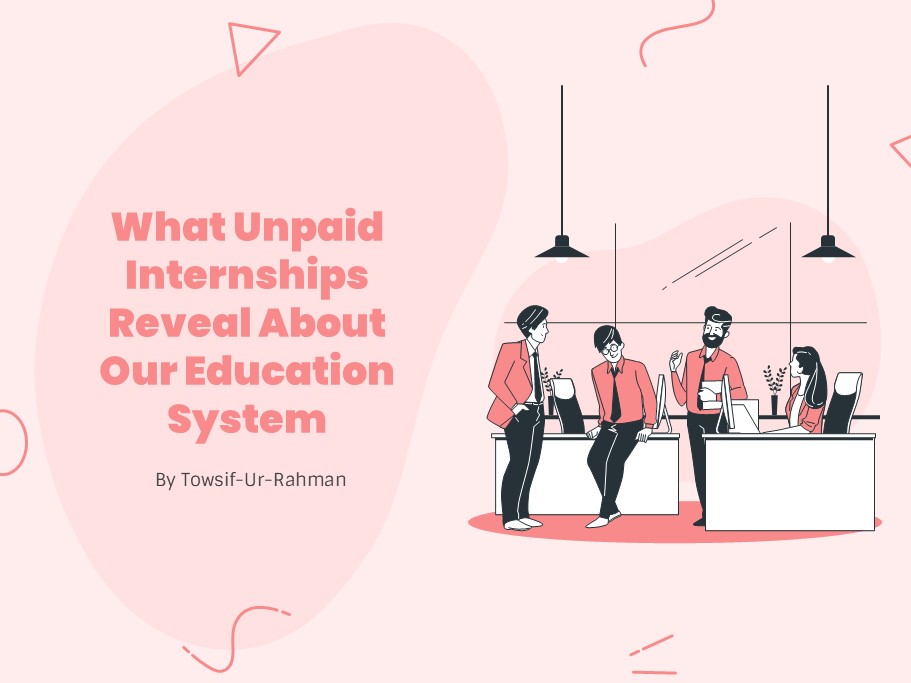The ethics behind unpaid internships have long been discussed. When one side says, “Labor without payment is slavery” the other side says, “Should only the wealthy be allowed to pursue entrepreneurship then?”. But lost between these conversations is what it says about our tertiary education.
During my freshman year, I had completed an internship at a leading multinational company. I’ve also worked for an early-stage startup. In both cases, my education so far played next to no importance. Things I learned from extracurricular activities and a short onboarding procedure had me ready to take on the challenge.
Luckily in my case, both the jobs were paid, but most people are not so fortunate. University freshmen are the prime targets of unpaid internships, and it isn’t like they are easy jobs topped with a great learning opportunity. More often than not, it’s the same work that would be performed by a graduate entry-level employee. Except in that case, you’d have to offer the graduate a competitive salary.
Wishing to remain anonymous, a recent graduate from IBA, University of Dhaka working for a multinational tech-company said, “Most of what I’m doing as an entry-level employee was learned from on-the-job training while my academics have barely played any part”.
This is especially true for business students. As soon as they step into university, they are told to start working to gather experience even if they receive no payment for it. Soon, the newbies are inundated with work they were not prepared for. They have to make their way through this without a salary, because the unpaid internship is teaching them “the ways of the real world”.
A sophomore from University of Liberal Arts-ULAB pursuing BBA, also wishing to remain anonymous said, “My employer overworked me to the point where it was harming my health and studies, I was given tasks I had no clue how to perform. Asking to be taught was met with condescending words and even disparage”. And as many would have guessed, it was an unpaid internship.
We should definitely stand against the exploitation of unpaid internships; it is already a common topic one would come across on social media. But if our education system provided us with the “ways of the real world”, then the demand for these unpaid opportunities wouldn’t exist in the first place.
Looking at the bigger picture, unpaid internship is only one of the hundreds of reasons to revamp our tertiary education. However, it can serve as a great tool for the much-needed renovation.
These internships or work opportunities point us towards what the job market really expects from university students. The information can help us shift towards a more practical system where we won’t have to juggle academics that do not matter and internships that do not pay.
This can also help us categorize or classify our education throughout the 4-year degree. Certain semesters or levels should be able to tell us how ready we are for certain jobs. In today’s rapidly changing world, waiting 4 years to prove that you are finally worth a competitive salary and a challenging work opportunity is a waste of time and talent.
But for all this to happen, we have to bring more attention towards renovating our education system, only then will it produce a more capable work-force for our future.



